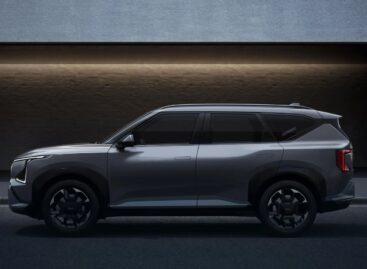Cheap, but good? Many people make this mistake when buying a used car
Due to the continuous increase in new car prices, buying a brand new car is becoming increasingly difficult for many individuals, which is why the demand for used cars is increasing drastically. Whether it is a new or used car, it is one of the most valuable investments in a family’s life, lasting for several years. Despite this, many people make decisions primarily based on a single expense, the purchase price of the car, and do not take into account the real costs of ownership. Hungary’s largest fleet manager and mobility service provider, Ayvens, has summarized what is worth paying attention to when choosing a used car if we are looking for an economical solution in the long term.

The new car market is experiencing significant price increases year after year, which are further exacerbated by the EU’s new, strict emission regulations. As a result, buying a new car is becoming more and more difficult for more individuals, and demand is increasingly shifting towards the used car market. At the same time, whether it is a new or used car, buyers must be especially careful to choose a truly economical and reliable vehicle.
The total cost approach – not only the purchase price matters
“The TCO (Total Cost of Ownership) approach, which has been used in international fleet management for decades, is increasingly spreading to the world of private buyers. This is no coincidence, as the costs of maintaining a car consist of numerous items, such as maintenance, consumption, insurance, and administrative burdens, which significantly affect our long-term expenses. Therefore, it is not at all certain that a vehicle with a more favorable purchase price but higher operating costs will be good for us in the long run,”
points out Viktor Hegedűs, Director of the Ayvens Car Remarketing business unit.
“In addition to the purchase price, fuel consumption is a key factor: the difference between the fuel costs of two cars of the same price can be tens of thousands of forints per month. “A car that consumes 2 liters more per 100 kilometers, with an annual mileage of 20,000 kilometers, increases maintenance costs by up to 200-300 thousand forints, based on current fuel prices,” the expert points out.
Related news
These will be the most anticipated electric cars of 2026
🎧 Hallgasd a cikket: Lejátszás Szünet Folytatás Leállítás Nyelv: Auto…
Read more >The 2025 Sustainable Future Awards were presented: the most outstanding sustainable companies and leaders of the year were recognized
🎧 Hallgasd a cikket: Lejátszás Szünet Folytatás Leállítás Nyelv: Auto…
Read more >Car comfort features are changing rapidly
🎧 Hallgasd a cikket: Lejátszás Szünet Folytatás Leállítás Nyelv: Auto…
Read more >Related news
Festival buzz at the 60th anniversary EuroShop trade fair
🎧 Hallgasd a cikket: Lejátszás Szünet Folytatás Leállítás Nyelv: Auto…
Read more >Historic price reduction at ALDI
🎧 Hallgasd a cikket: Lejátszás Szünet Folytatás Leállítás Nyelv: Auto…
Read more >









